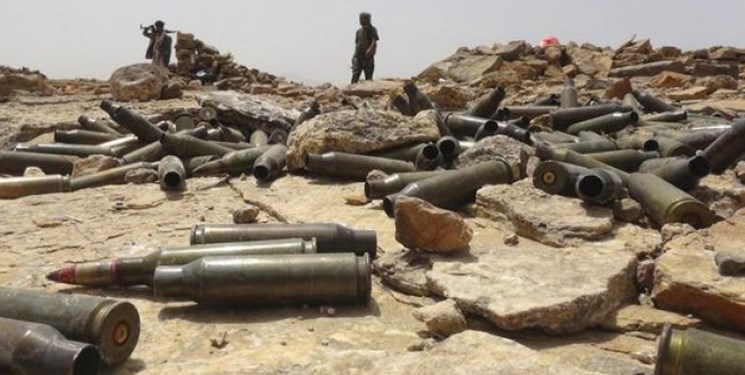Seyed Mohammad Reza Seyed Ahmad, in an interview with the website of the Strategic Council on Foreign Relations, referred to Ansarollah’s three-day deadline for Saudi Arabia to accept the ceasefire and announcing acceptance of the ceasefire by Riyadh, said: From the very beginning, when the UN entered the war in Yemen, the Ansarollah leader had emphasized that the humanitarian case should be separated from the political case, but we have witnessed that, unfortunately, Saudi Arabia’s attempt to commit genocide in Yemen has not met with a serious UN response.
Referring to the efforts of the UAE to prevent Ansarollah from advancing on the battlefield, he added: The plan that Ansarollah and the Yemeni army had devised to remove the UAE from their path paid off, and its consequences were a lesson for Egypt and other countries seeking to cooperate with Saudi Arabia that if they want to enter the war, what painful economic blows they have to endure.
The Yemeni expert referred to Ansarollah’s criticism of Saudi Arabia’s decision to prevent import of fuel and energy from the port of Al-Hudaidah, and saying that the numerous blows that Ansarollah inflicted on targets in Saudi Arabia showed that the country could not stand it, noted: As the UN Secretary-General Guterres pointed out, the ceasefire between Saudi Arabia and Yemen is very fragile and cannot be sustainable. Saudi Arabia will definitely violate it; as we are witnessing the attacks of the Saudis after accepting the ceasefire.
Seyed Ahmad, stating that Ansarollah has continued its work and made progress from the beginning under such conditions, explained: We have witnessed this trend since the beginning of the war, but the situation has finally ended in favor of Ansarollah; Al-Hudaidah is almost in the hands of Ansarollah and the Yemeni army today, despite all the attempts by Saudi Arabia.
He added: Nevertheless, Saudi Arabia is not observing the ceasefire, and a command center in Yemen has announced that the coalition forces, for example, violated the ceasefire 86 times in Al-Hudaidah Province within 24 hours on April 3, killing three Yemeni citizens in the missile attack on Saada Province. Ansarollah also knows that Saudi Arabia has no good intentions; but the Political Council accepted the ceasefire just to show goodwill.
Regarding the outlook for the Yemeni war, the analyst of Yemen affairs stressing that Ansarollah would achieve its goals and that, according to reports, two fuel-carrying ships had docked in the port of Al-Hudaidah, added: According to the two-month ceasefire agreement, the ceasefire calls for the cessation of all ground, air and naval operations inside and outside Yemen and the cessation of all ongoing operations in the field. Also, 18 ships carrying oil derivatives will arrive in Al-Hudaidah port in two months. During this period, Sanaa Airport will resume its activities on a limited basis and will have two commercial flights a week to Jordan and Egypt.
He stressed: If Saudi Arabia interferes in this regard, we will definitely see wider Ansarollah attacks on Saudi Arabia; because the sensitive points of that country have been identified and a very good database has been obtained.
Seyed Ahmad continued: Ansarollah has gained power in the seven-year war and under siege; this group did not have drones and missiles, but today it has the power of drones and missiles! It had nothing to say on the ground and did not have air defense, but today the situation has changed. Today, Ansarollah also uses its navy in the warfare, while it did not have such facility before. All such developments show to what extent Saudi Arabia is on the verge of defeat.
He said: Ansarollah will not give up its right and the right of the Yemeni people and has stressed that if Saudi Arabia does not compensate for the damage it caused to Yemen in the war, it will not withdraw from “Najran”, “Jizan” and “Asir”.
The expert on Yemen affairs pointed to Saudi Arabia’s attempts to take advantage of the situation in Ukraine and the energy market, adding: Riyadh had previously sought to take advantage of international conditions for recruitment; Western countries have also been completely against Ansarollah and nothing new has happened; therefore, this situation cannot change the war in Yemen.
Seyed Ahmad, emphasizing that acceptance of such minimal peace by Ansarollah is only due to the conditions of the people, stated: The fuel that enters from the port of Al-Hudaidah is for the needs of the people’s lives and the fuel needed by the hospitals of that region. The situation of the people is very important for Ansarollah; as Ansarollah handed over the wounded captives to Saudi Arabia without any exchange, Saudi Arabia did not take any appropriate action.
Referring to the support of the Yemeni people for Ansarollah and their resistance, he explained: We are witnessing numerous popular protests in Aden and areas under control of the UAE and Saudi Arabia, but no such protests have taken place in the government under sanctions and siege of the “National Salvation”. As we can see, one dollar is equivalent to 600 Yemeni riyals of the Sanaa-based government, but one dollar in the capital of Aden is 1500 riyals! These show how successful Ansarollah has been and has gained strength instead of being weak.
The analyst of Yemen affairs said: All that the West could have done in the Yemen war against Ansarollah and is no longer able to accompany Saudi Arabia. Riyadh received help from anyone it could, but did nothing. On the other hand, Ansarollah has no financial ties or oil sales that could be affected by sanctions.










0 Comments